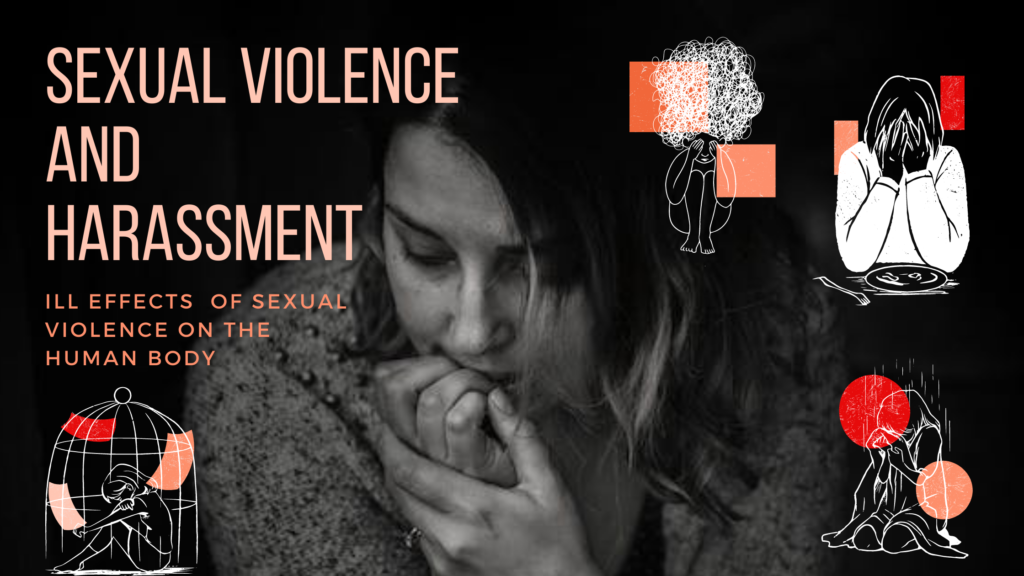Sexual violence is a heinous crime that can have devastating and long-lasting health consequences for survivors. Sexual violence refers to any form of unwanted sexual contact or behaviour, including rape, sexual assault, sexual harassment, and unwanted sexual advances. The physical, psychological, and social impacts of sexual violence can be profound, and survivors may experience a range of health consequences that can affect them for years after the initial trauma.
Physical Health Consequences
Sexual violence can cause a range of physical health consequences, including injuries to the reproductive system, sexually transmitted infections (STIs), and unwanted pregnancies. Survivors may also experience chronic pain, headaches, digestive problems, and other physical symptoms as a result of the trauma. In some cases, survivors may contract HIV or other blood-borne diseases if they are raped or assaulted with a contaminated object.
Some of the health issues faced by victim of sexual violence can be:
- Severe abdominal pain.
- Burning micturition.
- Sexual dysfunction.
- Dyspareunia.
- Menstrual disorders.
- Urinary tract infections.
- Unwanted pregnancy.
- Miscarriage of an existing fetus.
- Exposure to sexually transmitted infections (including HIV/AIDS).
- Pelvic inflammatory disease.
- Infertility.
- Unsafe abortion.
- Mutilated genitalia.
- Self-mutilation as a result of psychological trauma.
Psychological Health Consequences
The psychological health consequences of sexual violence can be severe and long-lasting. Survivors may experience depression, anxiety, post-traumatic stress disorder (PTSD), and other mental health conditions. They may also develop low self-esteem, shame, and guilt as a result of the trauma. Survivors may also struggle with trust and intimacy issues, which can make it difficult to form healthy relationships.
Short term psychological effects:
- Fear and shock.
- Physical and emotional pain.
- Intense self-disgust, powerlessness.
- Worthlessness.
- Apathy.
- Denial.
- Numbing.
- Withdrawal.
- An inability to function normally in their daily lives.
Long term psychological effects:
- Depression and chronic anxiety.
- Feelings of vulnerability.
- Loss of control/loss of self-esteem.
- Emotional distress.
- Impaired sense of self.
- Nightmares.
- Self-blame.
- Mistrust.
- Avoidance and post-traumatic stress disorder.
- Chronic mental disorders.
- Committing suicide or endangering their lives.
Social Health Consequences
Sexual violence can have a significant impact on a survivor’s social life. Survivors may experience social isolation, loss of friendships, and difficulty with interpersonal relationships. They may also experience discrimination and stigma, which can make it difficult to access resources and support. Survivors may also struggle with employment and financial stability, which can further exacerbate their trauma.
Prevention and Treatment
Preventing sexual violence requires a collective effort from society as a whole. This includes educating individuals on consent, promoting gender equality, and holding perpetrators accountable for their actions. Survivors of sexual violence need access to comprehensive medical and mental health care, as well as legal services and support groups. Treatment may involve therapy, medication, and other forms of support to help survivors heal and recover from their trauma.
Conclusion
Sexual violence can have severe and long-lasting health consequences for survivors. It is a complex issue that requires a multi-faceted approach to prevention and treatment. Survivors need access to comprehensive medical and mental health care, legal services, and support groups to help them heal and recover from their trauma. Society as a whole must work together to prevent sexual violence and create a safer and more equitable world for all.
